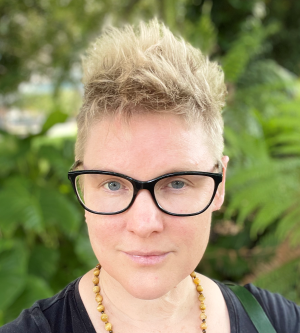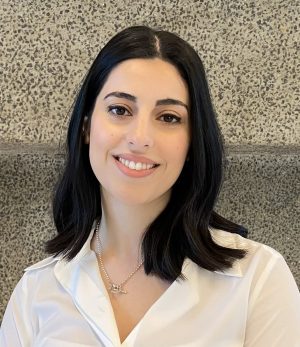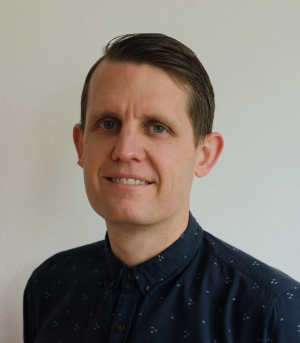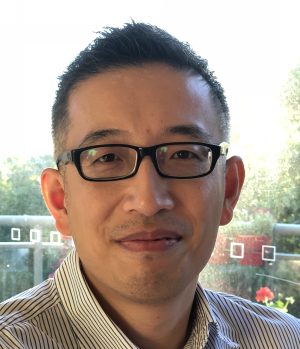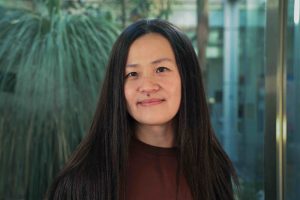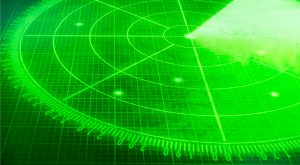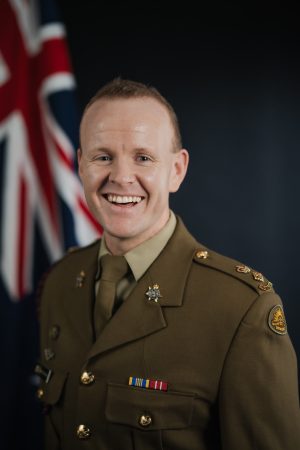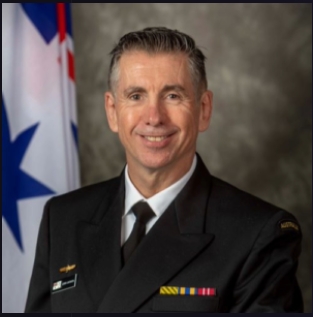Save the Date
Defence Artificial Intelligence 2023 Symposium
The University of Queensland, Australia
9:00 - 16:30 (AEST) 27th Nov, 2023
Welcome to Defence Artificial Intelligence 2023 Symposium!
Building AI capabilities in Australia is critical for the Defence sector. Decision superiority, the ability to make decisions faster and with higher degrees of accuracy, will increasingly benefit from advancements in sovereign AI capabilities and enable Defence to process large quantities of data in complex operating environments. These advancements in AI will provide data-driven performance advantages to the Australian Defence Force.
The Defence Artificial Intelligence Symposium is an exciting opportunity for Defence and AI researchers come together and explore priorities, opportunities and commonalities.
Details regarding program and call for submissions will be released shortly.
The symposium is an initiative of DAIRNet (the Defence Artificial Intelligence Research Network) and is proudly presented alongside the Australasian Joint Conference on Artificial Intelligence.
DAIRNet aims to establish and sustain a community of AI researchers working together in an environment that stimulates new ideas and knowledge, and supports evaluation, testing and integration of novel AI technologies for Defence. DAIRNet is an initiative of the Department of Defence and is managed in partnership with the University of South Australia
Defence AI Symposium Presenters and Panel
Assurance of AI systems to enable trusted decision support
Bad, mad and cooked: Moral responsibility for civilian harms in human-AI military teams
Biography
Kate Devitt is a specialist in building trustworthy robotics, autonomous systems, and artificial Intelligence (RAS-AI) in both military and civilian domains. She has a PhD philosophy (epistemology, applied ethics) and graduate certificate in cognitive science from Rutgers University NJ USA and a BA (Hons) Melbourne University. 2020-2023 Kate was Chief Scientist of Trusted Autonomous Systems Defence CRC where she led the Ethics, Law and Assurance Activity and Queensland industry-led projects. 2018-2021 she was a social and ethical robotics researcher Defence Science & Technology Group. Kate is currently a Strategic AI Advisor to the Queensland Government, Adjunct Professor QUT Centre for Robotics and Adjunct Associate Professor Human-Centred Computing, ITEE, UQ. She is a Fellow of the Australian Security Leaders Climate Group. Kate is one of '100 Brilliant Women AI Ethics 2023' and '50 Women in Robotics You Need to Know About 2021'
Navigating trust in AI-enabled systems
Biography
Dr Zena Assaad completed a Bachelors Degree and PhD in Aerospace Engineering. She is currently a senior research fellow in the School of Engineering at the Australian National University and is also a Trusted Autonomous Systems fellow and an Australian Army Research Centre fellow. Her research explores the safety of human-machine teaming and assurance of robotics, autonomous systems and AI. Dr Assaad is also the founder and chair of the Australian national community of practice for UAS and AAM research. Dr Assaad received the 2023 Asia Pacific Women in AI Award for Defence and Intelligence and was named one of the '"100 Brilliant women in AI Ethics" for 2023 as a result of her work around safety and assurance of AI. She is also the co-host and co-producer of the Algorithmic Futures podcast, which explores the work needed to successfully design technology and policy for an uncertain future.
Explainable AI is dead! Long live Explainable AI
Biography
Tim Miller is a professor of artificial intelligence in the School of Electrical Engineering and Computer Science at The University of Queensland, Brisbane, Australia. His primary area of expertise is in artificial intelligence, with particular emphasis on: human-AI interaction; AI-assisted decision support; explainable AI (XAI); and reasoning about action and knowledge. His work is at the intersection of artificial intelligence, interaction design, and cognitive science/psychology, bringing in models of decision making and interaction from other fields to build more human-centred AI systems. His applied work has been in several areas including defence, health, and finance. Prior to his appointment at The University of Queensland, he was a professor of computer science at The University of Melbourne, where he was founding co-director of The Centre for AI and Digital Ethics.
Frontier AI in Defence: From AI Governance to AI Safety
Biography
Dr/Prof Liming Zhu is a Research Director at CSIRO’s Data61 and a conjoint full professor at the University of New South Wales (UNSW). He is the chairperson of Standards Australia’s blockchain committee and contributes to the AI trustworthiness committee. He is a member of the OECD.AI expert group on AI Risks and Accountability, as well as a member of the Responsible AI at Scale think tank at Australia’s National AI Centre. His research program innovates in the areas of AI/ML systems, responsible/ethical AI, software engineering, blockchain, regulation technology, quantum software, privacy and cybersecurity. He has published over 300 papers on software architecture, blockchain, governance and responsible AI. He delivered the keynote “Software Engineering as the Linchpin of Responsible AI” at the International Conference on Software Engineering (ICSE) 2023. His two upcoming books “Responsible AI: Best Practices for Creating Trustworthy AI Systems” will be published by Addison Wesley in 2024.
Contexts of a Context in Human-Swarm Teaming
Biography
Hussein Abbass is a full professor at the School of Systems and Computing, University of New South Wales, Canberra. He is a Fellow of IEEE, a Fellow of the Australian Computer Society, a Fellow of the UK Operational Research Society, a Fellow of the Australian Institute of Managers and Leaders, and a Graduate Member of the Australian Institute of Company Directors. He was the National President (2016-2019) of the Australian Society for Operations Research, the Vice-President for Technical Activities (2016-2019) for the IEEE Computational Intelligence Society and an ExCom and AdCom member (2016-2019) of the IEEE Computational Intelligence Society. Prof. Abbass is a Distinguished Lecturer for the IEEE Computational Intelligence Society and the Founding Editor-in-Chief of the IEEE Transactions on Artificial Intelligence. He is an Associate Editor of several IEEE journals including the IEEE Transactions on Cybernetics. After 10 years in industry and academia, he joined UNSW Canberra in 2000 and has been a full professor since 2007. His current research focuses on trusted quantum-enabled human-AI-swarm teaming systems and distributed and trusted machine learning and machine education systems and algorithms.
Generative AI and Large Language Models for Generalisable and Robust Situational Awareness
Biography
Professor Flora Salim is the inaugural Cisco Chair of Digital Transport and AI, University of New South Wales (UNSW) Sydney, Australia, and the Deputy Director (Engagement) of the UNSW AI Institute. Her research is on ubiquitous computing, behaviour modelling, trustworthy and robust AI, and machine learning for multimodal sensor data. She is a Chief Investigator of the ARC Centre of Excellence in Automated Decision Making and Society (ADM+S), and the Co-Lead of the ADM+S Machines Program, and the Transport and Mobilities Focus area. She serves as a member of the Australian Research Council (ARC) College of Experts, an Editor of Proceedings of the ACM on Interactive, Mobile, Wearable, Ubiquitous Technologies (IMWUT), the Associate Editor-in-Chief (AEIC) of IEEE Pervasive Computing, and an Associate Editor of ACM Transactions on Spatial Algorithms and Systems. She has received several fellowships and funding from the Australian Research Council, the Humboldt Foundation, Bayer Foundation, Microsoft Research, Cisco, IBM, Qatar National Research Fund, CSIRO (in partnership with NSF), local and state government agencies, and many other industry partners. She received the Women in AI Awards 2022 ANZ - Defence and Intelligence category.
The use of Large Language Models in Defence
Biography
Dr Glennn Moy received a Bachelor of Science with Honours from the University of Queensland and a PhD from the Australian National University in theoretical physics. Glennn currently works for the Australian Defence Science & Technology Group (DSTG), where he has developed a range of analytical tools, including in areas of joint planning, logistics and capability modelling. Glennn has worked as an embedded scientist for DSTG at Headquarters Australian Theatre and the Deployable Joint Force Headquarters, as well as on operational deployments with the Australian Defence Force. His research interests are in artificial intelligence and machine learning, where he has investigated the role of deep learning techniques to enhance decision making within the ADF. His current research focus includes the use of reinforcement learning for military analysis and decision making, and the application of foundation models to military planning.
Advanced ML Techniques
Biography
Lieutenant Colonel Adam Hepworth leads the exploration of Artificial Intelligence within Army’s Robotic and Autonomous Systems Implementation and Coordination
Office (RICO). Adam’s portfolio includes human-cognitive augmentation, autonomous systems, AI-enabled decision-making, and human-machine teaming and swarming.
Adam holds a Bachelor of Science in Mathematics from the University of New South Wales, a Master of Logistics and Supply Chain Management from the University
of South Australia, a Graduate Diploma in Scientific Computation from the United States Naval Postgraduate School, a Master of Science in Operations Research
from the United States Naval Postgraduate School, and a Doctor of Philosophy (PhD) in Computer Science from the University of New South Wales.
Adam was the 2022 Chief of Army Scholar at the Australian Army Research Centre and is presently a Visiting Fellow at the University of New South Wales, resident
in the School of Systems and Computing. His current research contributes to swarm shepherding for human-swarm teaming, activity recognition and behaviour
prediction, and the design of artificial intelligence systems.
Biography
Commander Jackson CSM, spearheads the Navy's Artificial Intelligence program, blending a robust background in technology enterprise development with naval expertise. He re-joined the Navy after experience in a range of technology companies. He led the design and development of diverse technology platforms, enhancing domains from engineering to human resource management.
He was instrumental in integrating technology advancements into the New Generation Navy Program, which earned him a Conspicuous Service Medal.
Currently, as the Director of Artificial Intelligence Navy, he is responsible for implementing AI across naval operations, including autonomous systems and shore-based environments. His role extends to leading the Australian Undersea Warfare AI initiatives under AUKUS Pillar 2. He holds multiple degrees, including an MBA and a Bachelor in Business, supplemented with industry qualifications in project management, logistics, and business process management.
Detailed program
| Time | Content | |||
| 9:00 – 9:45 | Welcome and introduction - AI Program Dr Mel McDowall (Director, DAIRNet) Dr Rob Hunjet (DSTG AI Program) Keynote GPCAPT David Clyde (Joint Capability Group) Assurance of AI systems to enable trusted decision support |
|||
| 9:45 – 10:15 | Break | |||
| 10:15 – 12:15 | Responsible AI. Advanced Machine Learning Techniques Dr Sebastien Wong Dr Liming Zhu (Data 61) Dr Kate Devitt (University of Queensland) Dr Zena Assaad (Australian National University) Prof Tim Miller (University of Queensland) |
|||
| 12:15 – 13:15 | Lunch | |||
| 13:15 – 14:45 | Contextual Awareness. Large Language Models, Prof Hussein Abbass (University of New South Wales) Prof Flora Salim (University of New South Wales) Dr Glennn Moy (University of Queensland) |
|||
| 14:45 – 15:15 | Break | |||
| 15:15 – 16:30 | Panel - AI and Capability WGCDR Rob Seabrook (Joint Capabilities Group) WGCDR Mike Moroney (Air Force) LTCOL Adam Hepworth (Army) CMDR Leigh Jackson (Navy) Closing remarks |
|||
| 16:30 | Networking | |||


